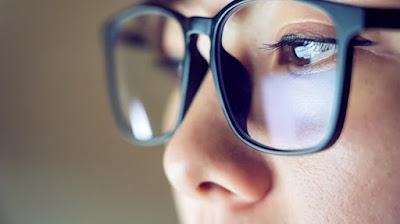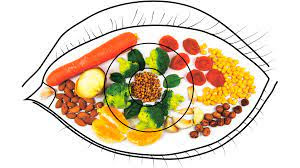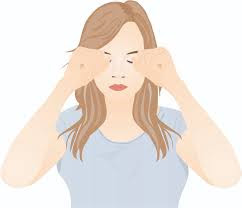Your eyes cannot be replaced. They are your doors to the outside world. However, because of their fragility, you must handle them with extreme care.
Your eyesight may worsen for a variety of causes, including ageing, pollution, stress, an unhealthy diet, etc. Although we can’t truly prevent the ageing of the eyes, we can slow it down. But many of the other concerns could be prevented if you implement a few measures.
To know about such measures, continue reading.
1. Adhere To The 20-20-20 Rule
Your eyes need to rest occasionally because they work so hard all day. If you spend extended periods of time at a computer, the stress may be quite severe. Use the 20-20-20 rule to reduce stress.
This means that every twenty minutes, you should take a 20-second break from looking at your screens and have a look at something that is 20 feet away.
2. Consume Enough Essential Vitamins And Minerals
Antioxidants found in zinc, vitamins A, C, and E can aid in the prevention of eye diseases.
These vital nutrients can be obtained from a range of vibrant fruits and vegetables, including:
• Carrots
• Sweet potatoes
• Citrus fruits
• Brocolli
• Strawberries
• Red peppers
• Spinach
For optimal eye health, foods high in omega-3 fatty acids like salmon and flaxseed are also advised.
3. Remember The Carotenoids
You can also take supplements containing carotenoids. They aid by increasing the eye's pigment density and absorbing blue and ultraviolet light.
4. Keep Germs Away
Try to keep your hands neat and clean always specially when putting them close to your eyes.
Take special care if you're placing or taking off contact lenses, wash your hands before placing them anywhere near your eyes.
5. Get Adequate Rest
It won't do to give your eyes a few minutes of rest. Your body needs consistent, peaceful sleep. Any doctor will tell you how critical sleep is to your overall health and wellbeing.
Your eyes renew once your body has had enough sleep. Short breaks during intense visual activities, like using computers or reading a book, are very beneficial to your eyes since they offer them an opportunity to rest.
6. Eye-Training Exercises
Because eyeballs have muscle, they could benefit from various exercises to keep them in good condition. When performed in the morning, when your eyes are sleepy, and just before going to bed, eye exercises are fantastic. You might begin to notice a difference if you maintain consistency for a month.
Start by rubbing warm palms over your eyes for 5 seconds. Attempt it three times. Rolling your eyes can strengthen your eye muscles in addition to being a sign of irritation. Circumambulate your eyes ten times in each direction while you look up.
Hold a pen out at arm's length and concentrate on it to help you focus. Slowly bring the pen up to around 6 inches from your nose. This procedure helps you improve your focus.
7. Protect Your Eyes From Dangers
Additionally, various environmental variables may affect them. These elements include the sun's rays as well as airborne contaminants like smoke, dust, and dirt.
Always wear top-notch sunglasses to shield your eyes from any negative consequences. Even prescription eyeglasses include lenses that are excellent at obstructing the sun's damaging rays and other environmental hazards.
8. Make Lighting Adjustments
Make sure the lights are not too strong in your working space. Turn off a few if you can. Sit away from open windows if possible because doing so will cause your screen to reflect light.
Additionally, you can change the brightness of the computers to match the room's lighting.
9. Stop Smoking
In addition to being unhealthy for a variety of reasons, smoking can cause blindness. Smoking can lead to age-related macular degeneration and raise your risk of developing cataracts (AMD). Smoking might also lower the number of antioxidants that are good for your eyes.
10. Make Your Environment Eye-Friendly
There are many things that we encounter every day that can harm our eyes. For instance, reading in low lighting, a lot of time spent glued to a screen, having pool chlorine in your eyes, and fluorescent lamps can all impair your vision. Take precautions to lessen your exposure to these circumstances by keeping an eye out for them.
Important
Note that eye health and age are related and that you should be more alert to age-related eye diseases as you get older. Your doctor could suggest that you get regular checkups and warn you about potential symptoms (such as poor vision & blurry sight).
Knowing your family history is another crucial consideration to make, regardless of age. Knowing the eye disorders your parents, as well as grandparents, had can assist you in taking preventative measures since some optical conditions are inherited.
Conclusion
Even while you might not think of cleaning your hand, consuming your vegetables, or maintaining a healthy weight as necessary phases toward better eyesight, they all matter.
You can't completely prevent all eye conditions by leading a healthy lifestyle and shielding yourself from the sun and other objects. However, they can all help to reduce your risk of experiencing a condition that could harm your vision.













the much needed one
ReplyDeleteA great set of instructions
ReplyDelete